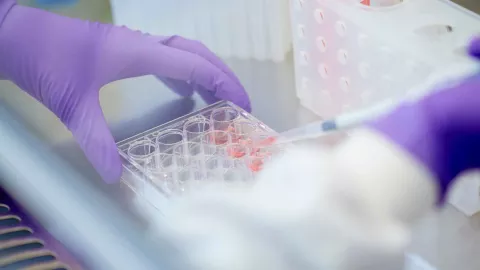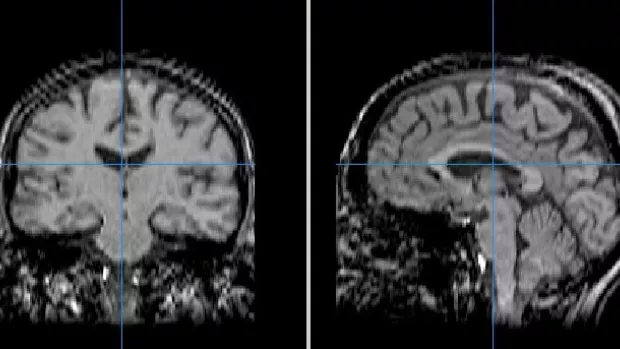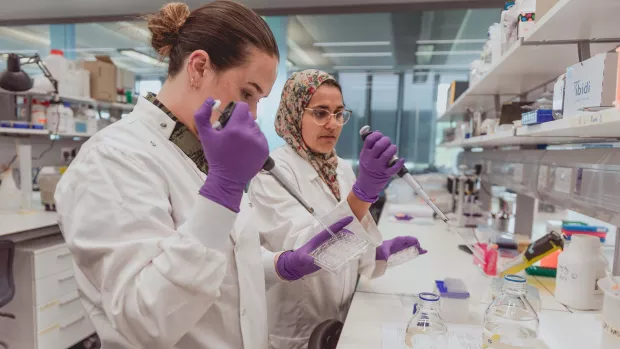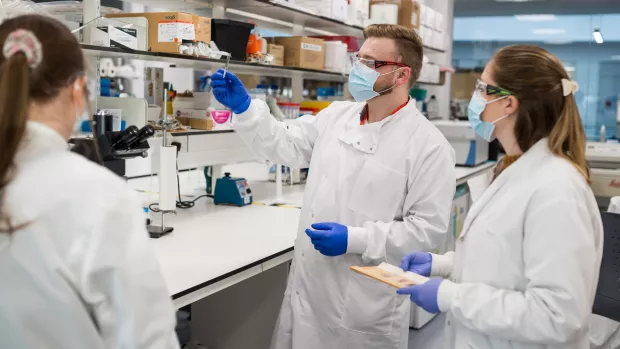
Biomarkers: the road to certainty
One of our goals is to give people with MS more certainty about their future. To help achieve this, researchers are investigating the biomarkers of MS.
What’s a biomarker?
Biological markers (or biomarkers) are detectable changes in the body. They can be anything from molecules in your blood to visible physical changes.
Biomarkers can be extremely useful in diagnosing, tracking and predicting the course of a condition. Lumbar punctures and MRIs are both used for diagnosis in MS. But has the full potential of biomarkers been realised?
Reducing uncertainty about the future
The signs and symptoms of MS are different for everyone, and getting a definite diagnosis can be a long and difficult journey.
Judging when someone’s MS has moved from a relapsing form to a more progressive form can be equally difficult. Knowing this is important in deciding what treatment options are the best for that person. More research into biomarkers will reduce this uncertainty.
Professor Daniel Anthony from Oxford is developing a blood test that can tell the difference between relapsing and progressive forms of MS. This could be used to monitor progression, improve diagnosis and show more quickly if a disease modifying therapy is working or not.
Dr Sharmilee Gnanapavan at UCL is comparing neurofilaments (a marker of nerve damage in MS) in people taking alemtuzumab and ocrelizumab and those who have HSCT.
And last year, researchers from the University of Huddersfield found that people with MS have a unique set of volatile organic compounds (VOCs) in their breath. In the future, a breath test could potentially be used for MS diagnosis or to track how someone’s MS in progressing.
Searching for MRI biomarkers
Some of the most important biomarkers are changes seen on MRI scans, and we’re supporting new projects looking for new MRI biomarkers as part of our latest funding round.
Dr Mina Kim at UCL think that changes in the acidity level of the brain may be an early sign of MS. So her team are developing an imaging technique to detect acidity levels in MRI scans of people with relapsing MS.
And also at UCL, Frederik Barkhof has identified a feature of MRI scans that could help distinguish between brain damage caused by MS and damage caused by other conditions.
Speeding up clinical trials
In relapsing MS, special gadolinium-enhanced MRIs are used to assess the levels of inflammation in the brain. This can help decide more quickly if DMTs are working or not in clinical trials.
We also want to be able see if drugs are working in clinical trials for progressive MS.
Through the Progressive MS Alliance, researchers in Canada, Spain and the Netherlands are looking for MRI, blood and CSF biomarkers of clinical progression in progressive MS. This will allow us to identify promising treatments more quickly and accurately in phase 2 clinical trials.
This blog first appeared in Research Matters magazine and was updated by our Research Communications team in May 2020 to reflect the latest insights. To receive Research Matters by post please contact [email protected] about subscription.



